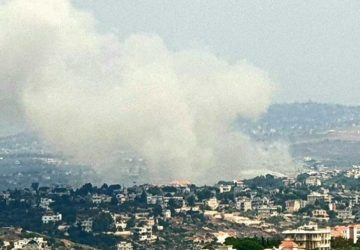Listen to the article
Lebanon and Palestine are suffering the devastating consequences of the war between Hamas and Israel that has been raging since October 7. The economic repercussions are significant, particularly affecting southern Lebanon. However, it is important to note that the State of Israel itself will not emerge unscathed from this situation and will struggle to recover if a global peace plan is not implemented.
While Lebanon appears not to suffer major losses given its already disastrous economic situation, with a GDP of 12.5 billion dollars, Israel, which enjoyed a thriving economy before October 7, with a GDP of approximately 564 billion dollars and an annual growth of 2.8%, faces a different reality due to the ongoing conflict.
According to the Bank of Israel’s forecasts, the Israeli economy is expected to experience a contraction in the fourth quarter, with a growth outlook of 2.3% in 2023. However, S&P Global Ratings is less optimistic, anticipating a more severe contraction of 5% in the last three months of 2023.
In the face of economic weakness, which is expected to impact consumer spending and investments, the central bank has indicated that it has no intention of reducing interest rates. The rationale behind this stance is the concern that lowering the existing rate of 4.75% could lead to shekel depreciation and potentially trigger inflation.
Lebanon: A Resilient Economy
According to economist Fouad Zmokhol, even though the repercussions on the Lebanese economy are dramatic, Lebanon has a highly resilient economy that can quickly recover after a few days of calm, unlike the case of the Israeli state. He believes that the impact of the war on the Israeli economy will be very serious and difficult to overcome. The losses, although not disclosed precisely, are estimated to be in the several hundred billion dollar range.
Zmokhol highlights, “The Israeli stock market has witnessed a loss exceeding 30 to 40%, while the financial sector has sustained losses amounting to approximately 30 to 50 billion US dollars. Additionally, there has been widespread concern and panic among depositors, leading to a surge in withdrawal requests from banks. This situation has been further exacerbated by a cessation in the issuance of credit. Industrial and technological productions are also on the decline, as most innovators are unable to work. Even gas extraction is currently at a standstill. Furthermore, the tourism and investment sectors have regressed, remaining stagnant, and any prospective growth appears jeopardized without stability.”
Zmokhol points out that Israel built its confidence by ensuring constant security through a powerful military and a renowned, unbeatable intelligence service, which attracted numerous investors. The pressing question now is whether these investors will uphold their commitment as the conflict persists.
Israel, aspiring to become a major hub in the Middle East as a center for leadership, innovation, and technology, now finds itself in a situation of decline, irrespective of the potential assistance and liquidity injections it might receive.
The economist suggests that the Israeli government acknowledges the substantial challenges of achieving economic recovery, especially debt repayment, in the absence of a global peace plan. He contends that this reality may compel the promotion of a global peace initiative, thereby providing a significant degree of security to the region. This approach aims to prevent the accumulation of economic, financial, and monetary losses, including those resulting from the ongoing conflict.
According to Zmokhol, Lebanon and the Middle East are now confronted with two alternatives: either persist in a path of war and global confrontation or seize a last opportunity for negotiations leading to global peace and stability.





